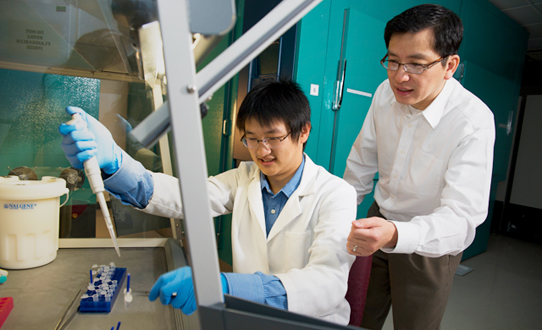Zhong said the research will provide insight into developing new control measures that could sidestep pesticides to suppress tick populations and their associated diseases, like Lyme borreliosis. Pesticides present environmental health hazards, hence the need for new control solutions.
At least 10 HSU undergraduate and graduate students will take part in the novel research, Zhong said. A large part of the $353,500 grant will finance student salaries and fringe benefits, the purchase of equipment, supplies and materials and reimbursement of conference travel.

Humboldt State students will join in presenting research data at forums such as the annual meetings of the Entomological Society of America, the American Society of Microbiology and the American Society for Rickettsiology.
Disease prevention is the focus of current tick research, according to Zhong, and scientists hope to pinpoint alternatives to pesticides to control tick populations. “Our proposal is innovative. We will explore the nutritional basis of tick-bacteria symbiotic interactions. That understanding will help with tick control measures and fighting tick-borne diseases by targeting folate productions from bacterial symbionts.”
Zhong explained that folate, also known as vitamin B9 or folic acid, is of particular interest because it is an essential vitamin for the normal development of all living organisms. Folate deficiency results in anemia, heart disease and birth defects in vertebrates.
Symbiotic bacteria live together in symbiosis with another organism or each other.
“In the long-term, the knowledge obtained from our research may provide insight into the design of fresh control measures based on bacterial symbionts rather than on ticks themselves,” Zhong continued. “The traditional view is that ticks carry a few microbial pathogens that cause human and animal diseases and have economic impacts. However, recent findings suggest that most microbe-host interactions are nonpathogenic, commensal, and mutual.”
Zhong began teaching at HSU in 2006. Prior to that, he taught at CSU Fullerton and at the Department of Parasitology at Shanghai Medical University in China.